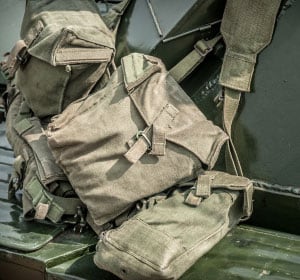In the world of the military, the term PCS holds significant importance. PCS, an acronym for Permanent Change of Station, refers to the process of relocating service members from one duty station to another.
In this blog post, we will answer “What does PCS mean military?” and delve deeper into this abbreviation’s significance and the impact it has on the lives of military personnel and their families.
Table of Contents
Military PCS Meaning
1. Definition
PCS stands for “Permanent Change of Station.” It refers to the relocation of a service member from one duty station to another on a long-term basis.
- PCS orders meaning: Official orders given to military personnel, indicating a relocation or transfer to a new duty station or assignment.
- PCS move meaning: The actual act of military personnel and their families moving from one duty station to another.
- PCS’d meaning: Often used as a shorthand way of expressing that a military service member has been relocated to a new duty station or assignment.
For example, when military personnel moves from A to B, they will say they have “PCS’d.”
- Note: PCS does not change across branches. So, the PCS Navy meaning is the same as that of the Army, Marine Corps, etc.
2. History
The PCS military term concept dates back to the early years of the American armed forces, and the practice has evolved over time to meet changing military needs and organizational structures.
As the military expanded and bases were established throughout the country and overseas, PCS became an essential process for ensuring the strategic distribution and deployment of personnel.
3. Purpose
PCSs ensure that personnel are deployed and distributed strategically to fulfill mission requirements, maintain military readiness, and support operations effectively.
4. Types
- CONUS to CONUS: A PCS move within the continental United States (CONUS), where a service member is relocated from one base or duty station to another within the continental U.S.
- OCONUS to CONUS: A PCS move from an overseas duty station (OCONUS) to one within the continental United States.
- CONUS to OCONUS: A PCS move involves relocating a service member and their dependents from a duty station within the continental U.S. to an overseas one.
- OCONUS to OCONUS: This category encompasses a PCS move between different overseas duty stations.
5. Entitlements & Benefits
- PCS provides financial assistance for moving and relocating, ensuring service members and their families can transition smoothly to the new duty stations.
- Additionally, service members are entitled to housing allowances and per diem rates based on their new duty location, ensuring they have appropriate housing and support while settling in.
- PCS also allows service members to accumulate valuable experience, skills, and professional development opportunities as they adapt to new environments and work with diverse teams.
6. Regulations & Requirements
PCS is governed by specific regulations and requirements. Service members are required to adhere to these guidelines to ensure a smooth and efficient relocation process.
- Firstly, they must follow the instructions provided by their branch of service, which outline the necessary steps and timelines for the PCS. This includes notifying their unit and obtaining appropriate orders for the move.
- Moreover, service members are required to complete mandatory training or briefings related to the PCS, such as financial management, transportation, and housing assistance. They must also ensure their medical and dental records are up-to-date and transferred to the new location.
- Service members may be required to undergo pre- and post-PCS inspections to ensure compliance with regulations and to assess any potential issues or damages as well.
By adhering to these regulations and requirements, service members can ensure a successful PCS, minimizing disruptions and ensuring a seamless transition to their new duty station.
- Note: The specifics may differ across branches. So, Army PCS requirements and Army PCS regulation may be different from those of the Navy.
6. Process
The PCS process in the US military involves a series of steps and procedures to facilitate the relocation of service members.
- Service members receive official orders specifying their new duty station and reporting date. They then initiate the process by completing the required paperwork and notifying their unit of their impending move.
- Service members coordinate with transportation offices to arrange for the shipment of household goods and vehicles, if applicable.
- Service members may undergo pre-PCS briefings, medical screenings, and housing arrangements to ensure a smooth transition to their new location.
Guide to Preparing for a PCS Move in the US Military
1. Time Requirements for a PCS Move
- Check the timeline provided on your orders to determine the reporting date and the time you have to complete the move.
- Create a personal timeline, breaking down tasks and deadlines leading up to the move.
2. Moving Expenses & Reimbursement
- Familiarize yourself with the military’s reimbursement policies for moving expenses.
- Keep track of all your receipts and expenses related to the move, such as packing materials, transportation costs, and temporary lodging.
- Ensure you understand the entitlements and reimbursement rates for items like mileage, per diem, and lodging during the move.
- Submit the necessary paperwork and receipts for reimbursement promptly.
3. Military Housing
- Determine your housing options at the new duty station. Research the availability of on-base housing or explore the local housing market if living off-base.
- Contact the housing office at your new duty station to start the application process and understand the requirements for on-base housing.
- If you live off-base, consider factors such as commute times, schools, and amenities when searching for a new home.
- Notify the housing office at your current duty station to terminate your current housing agreement, if applicable.
4. Transportation
- Coordinate with the transportation office to arrange for the shipment of your household goods and vehicles.
- Schedule a moving date and ensure you understand the procedures for packing, labeling, and inventorying your belongings.
- If you choose to do a Personally Procured Move (PPM), also known as a “Do-It-Yourself” move, research the guidelines and requirements, including weight limits and reimbursement rates.
- Make travel arrangements for yourself and your family to reach your new duty station, considering any necessary stops or accommodations along the way.
Remember to stay in close communication with your unit and utilize available resources, such as relocation assistance programs and support services.
PCS Tips for Military Families
1. Communication & Support
- Maintain open and clear communication with your spouse, children, and extended family throughout the PCS process. Discuss any concerns or anxieties they may have and offer support.
- Seek assistance from the military community and support organizations. They can provide valuable resources, guidance, and a network of individuals who have gone through similar experiences.
2. Plan Ahead
- Start planning for the move as soon as you receive your PCS orders. Create a checklist and timeline to ensure important tasks are completed in a timely manner.
- Research your new duty station and the local area. Look for information on housing options, schools, healthcare facilities, and recreational activities that will help your family acclimate to the new environment.
3. Involve Your Children
- If you have children, involve them in the planning process to make them feel included and give them a sense of control. Discuss the move with them, answer their questions, and address any concerns they may have.
- Help your children say goodbye to friends and assist them in maintaining relationships through social media or other means. Research extracurricular activities or support groups at the new location to help them transition and make new friends.
4. Organize and Prepare
- Declutter and downsize before the move to simplify the packing and unpacking process. Donate or sell items that your family no longer needs.
- Create a PCS binder or folder to keep all important documents, such as orders, medical records, school records, and financial paperwork, in one place.
- Pack a “PCS essentials” box with essential items like toiletries, clothing, important documents, and any medications that your family may need immediately upon arrival.
5. Take Care of Yourself
- PCS moves can be stressful, so remember to take care of yourself and prioritize self-care. Get enough rest, eat well, and exercise regularly to help manage stress and maintain your overall well-being.
- Reach out to your support network and seek assistance when needed. Utilize resources such as counseling services, if available, to help cope with the emotional aspects of the move.
Frequently Asked Questions (FAQs)
Is PCS the same as deployment?
No, PCS and deployment are not the same. PCS refers to permanent relocation of a service member to a new duty station, while deployment refers to a temporary assignment to a different location for military operations.
How often can I expect a PCS?
The frequency of PCS varies depending on various factors such as branch of service, career field, and individual circumstances. Generally, service members can expect to PCS every 2-4 years, but it can be more or less frequent depending on their specific situation and career path.
How much money do you get for PCS?
The amount of money received can vary based on several factors, including the member’s rank, dependents, distance of the move, and specific allowances and entitlements.
How long does it take for military members to receive their PCS entitlements?
The timeline for military members to receive their PCS entitlements varies. But usually, advances are not disbursed until 3 days before the date of payment.
Conclusion
To recap, “What does PCS mean military” PCS, or Permanent Change of Station, is a fundamental aspect of military life. It signifies the relocation of service members to new duty stations, offering opportunities for personal growth, professional development, and adaptability within the dynamic landscape of the armed forces.
Embracing the challenges and benefits of PCS moves allows military personnel to forge new connections, accumulate diverse experiences, and contribute to the mission while maintaining readiness and resilience.

I am Everett Bledsoe, taking on the responsibility of content producer for The Soldiers Project. My purpose in this project is to give honest reviews on the gear utilized and tested over time. Of course, you cannot go wrong when checking out our package of information and guide, too, as they come from reliable sources and years of experience.













